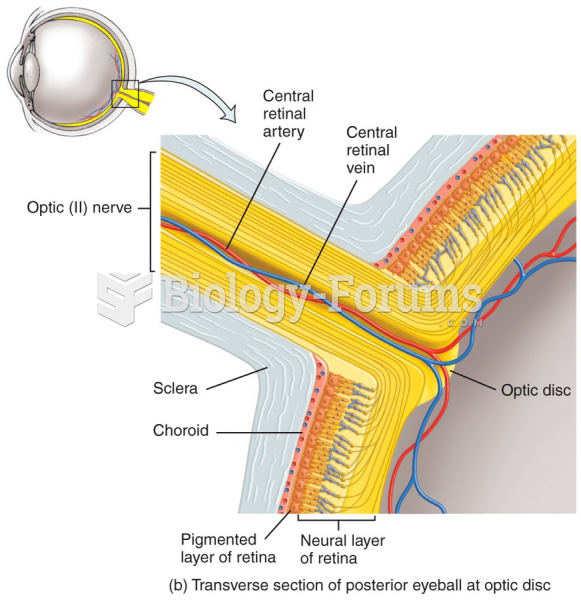|
|
|
The oldest recorded age was 122. Madame Jeanne Calment was born in France in 1875 and died in 1997. She was a vegetarian and loved olive oil, port wine, and chocolate.
The Centers for Disease Control and Prevention (CDC) was originally known as the Communicable Disease Center, which was formed to fight malaria. It was originally headquartered in Atlanta, Georgia, since the Southern states faced the worst threat from malaria.
More than 34,000 trademarked medication names and more than 10,000 generic medication names are in use in the United States.
After 5 years of being diagnosed with rheumatoid arthritis, one every three patients will no longer be able to work.
Blastomycosis is often misdiagnosed, resulting in tragic outcomes. It is caused by a fungus living in moist soil, in wooded areas of the United States and Canada. If inhaled, the fungus can cause mild breathing problems that may worsen and cause serious illness and even death.
 The female reproductive system, sagittal view showing organs of the system in relation to the urinar
The female reproductive system, sagittal view showing organs of the system in relation to the urinar
 Horizontal, frontal (coronal), and sagittal planes in the human brain and a cross section of the ...
Horizontal, frontal (coronal), and sagittal planes in the human brain and a cross section of the ...





